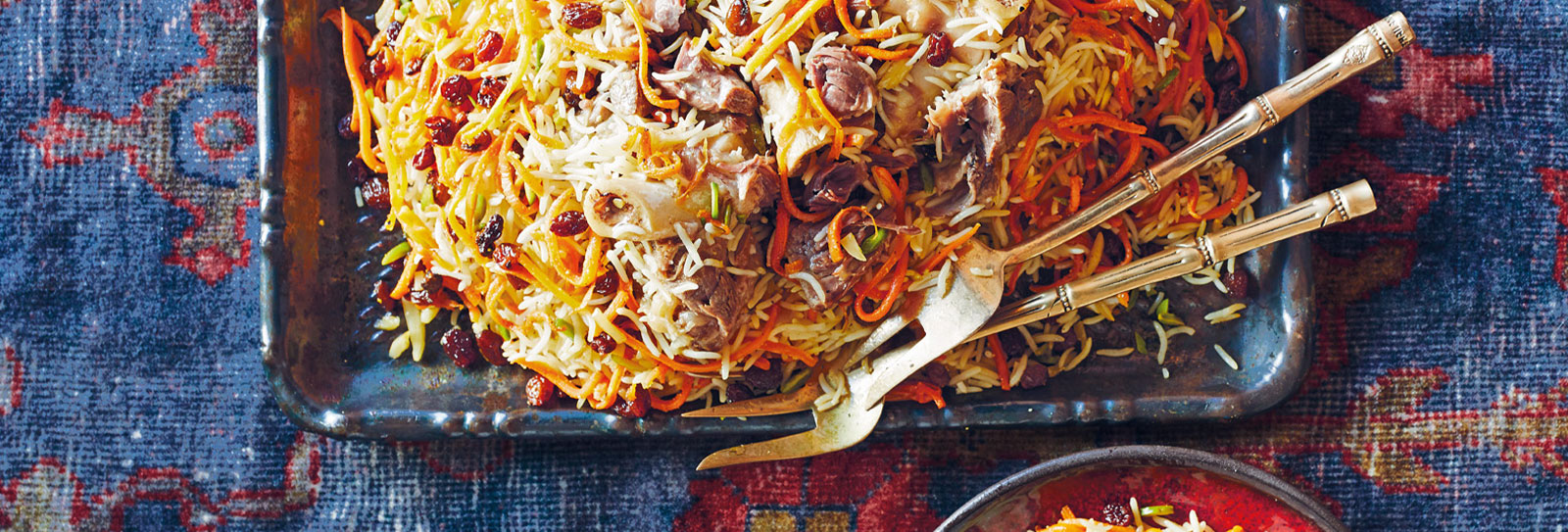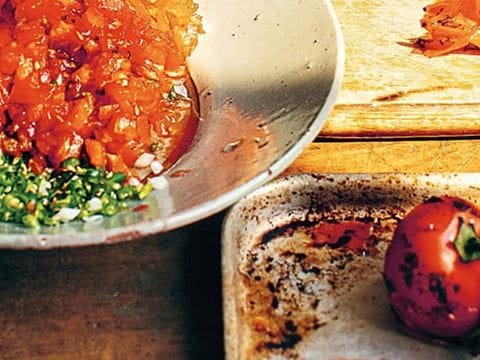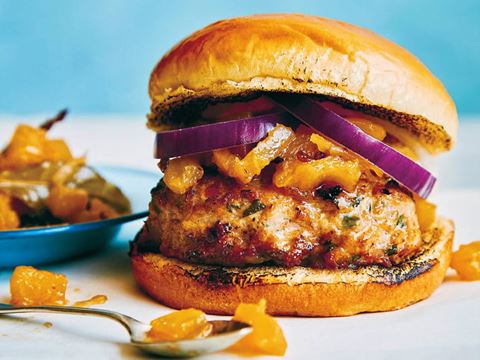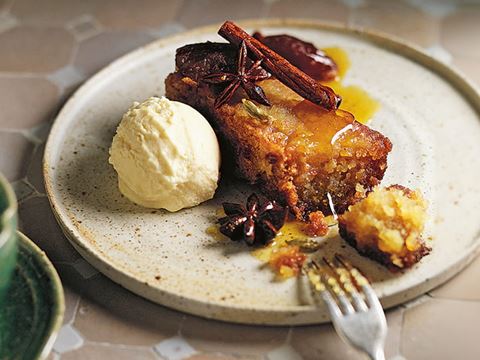
Flavors: Rice with Carrots and Raisins (Kabuli Palaw)
In a time before the convenience of julienne slicers and store-bought peeled and slivered nuts, kabuli palaw was time-consuming and elaborate to prepare and was reserved primarily for ceremonial events. These days, although it takes less time to make, it still commands reverence. The delicate blend of spices and a crowning glory of glistening carrots, raisins and nuts give kabuli palaw pride of place among Afghan rice dishes.
3 min
Recipe by Farida Ayubi Description by Durkhanai Ayubi Photograph by Alicia Taylor
This beautiful and balanced rice is Afghanistan’s national dish.
In a time before the convenience of julienne slicers and store-bought peeled and slivered nuts, kabuli palaw was time-consuming and elaborate to prepare and was reserved primarily for ceremonial events. These days, although it takes less time to make, it still commands reverence. The delicate blend of spices and a crowning glory of glistening carrots, raisins and nuts give kabuli palaw pride of place among Afghan rice dishes.
To prepare the palaw rice, add the oil and onion to a pressure cooker pan over high heat and fry for 5 minutes, or until golden brown. Add the lamb and stir occasionally for 5 minutes, or until the meat is browned and sealed. Add 4 ¼ cups (1 liter) hot water and a heaped tablespoon of salt, place the lid on the pressure cooker and bring to high pressure. Cook at high pressure for 15 minutes, then carefully release the pressure to remove the lid. Using a slotted spoon, take out the meat (which should be lovely and tender) and set aside. Reserve the stock to flavor the rice.
Bring 10 cups (2.5 liters) water to a boil in a large pot. Meanwhile, drain excess water from the rice, add it to the boiling water with 1 tablespoon salt and cook for 6 to 8 minutes or until the rice is parboiled and the grains look like they have doubled in length.
Drain the rice in a colander and return to the pot. Pour the meat stock over the rice, then add the cumin, cardamom and 1 tablespoon salt to the mixture. Using a large, flat, slotted spoon, known to Afghans as a kafgeer, mix gently. With the kafgeer, create a well in the center of the rice and place the lamb in the well. Cover the meat with rice and place the lid on the pot. Cook over high heat until steam escapes from under the lid, then reduce the heat to very low and cook for 20 minutes.
For the topping, heat the oil in a frying pan over high heat until shimmering. Add the carrots and fry for 4 to 5 minutes, or until slightly softened. Remove with a slotted spoon and set aside in a bowl. Add the raisins to the oil and fry for 3 minutes, or until they are plump and float to the surface. Remove with a slotted spoon and add to the bowl with the carrots. Add the nuts, sugar and cardamom to the bowl and mix gently.
Using the kafgeer, layer the rice and lamb onto a large serving platter, creating a heap. Liberally spoon over the topping and serve immediately.
Reprinted with permission from
Parwana: Recipes and Stories From an Afghan Kitchen
Durkhanai Ayubi 2021, Interlink Books, 978-1-62371-875-6, $35 hb, interlinkbooks.com.
Freelance food writer and restaurateur Durkhanai Ayubi is involved in day-to-day responsibilities of two family-run eateries in Adelaide, Australia: Parwana and Kutchi Deli Parwana. She has written for several international newspapers and websites. Daughter of Afghani refugees Zelmai and Farida Ayubi, she tells her family’s story from her own perspective while passing along memories and recipes from her parents. Parwana is her first book, and it won the 2021 Art of Eating Prize.
You may also be interested in...

Cook Bangladesh’s Spicy Tomato Bhorta by Chef Asma Khan
Food
Bhorta or bharta is a generic term used in Bengal to describe anything that has been ground, pounded or chopped into very small pieces. It is a side dish almost like a relish, which is commonly eaten with rice and lentils.
Easy Indian Ground Chicken Burger Recipe
Food
Like the iconic bun kabab of Karachi in Pakistan or Hyderabad in India, a spicy kabab inside a bun is a popular street food in certain regions of the Indian subcontinent.
Bake This Tasty Date, Orange and Olive Oil Cake by Shane Delia
Food
On one of famed chef Shane Delia's many trips to Morocco, some Bedouin men showed him how warming dates in olive oil before placing them in a tangine brings out the flavor of the caramel in the date, leading Delia to this recipe.